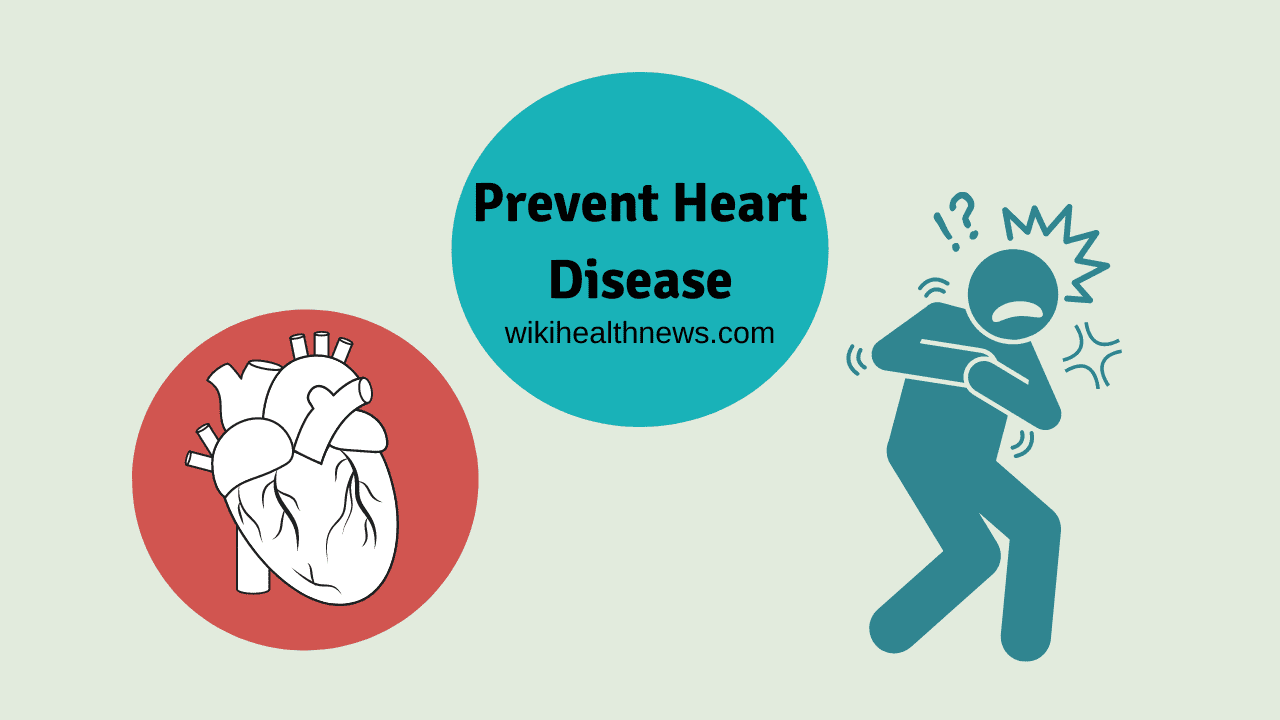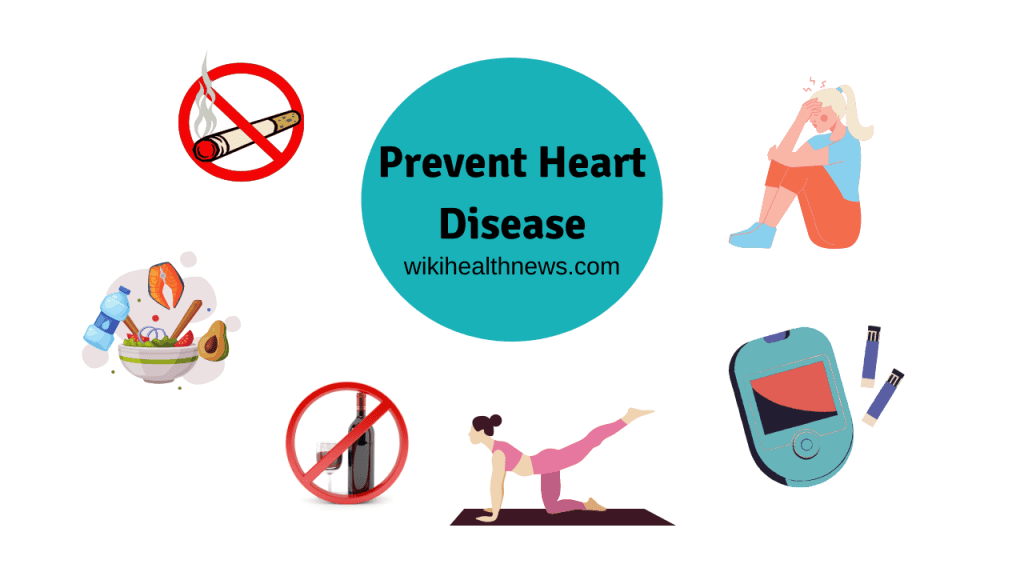Prevent Heart disease – Avoid Risk Factors

Risk Factors For Heart Disease
Heart disease means a range of conditions that affect the heart. Most common heart diseases include: blood vessels, such as coronary artery disease. Heart rhythm problems are called arrhythmias, heart defects which are called congenital heart defects.
Risk factors for developing heart disease which may include:
Age
Growing older increases the risk of damaged and narrowed arteries and a weekended or thickened heart muscle.
Sex
Compared to women, men are more commonly at greater risk of heart disease. The risk of heart disease for women increases after menopause peroid.
Family History
A family history of heart disease increases the risk of coronary artery disease, especially if a parent developed it at an early age like before age of 55 for a male relative, such as a brother or father, and 65 for a female relative such as a mother or sister.
Smoking
Nicotine tightens the blood vessels, and carbon monoxide can damage their lining, making them more susceptible to atherosclerosis. Heart problems are more common in smokers than in nonsmokers.
Poor diet
A diet which is totally high in fat, salt, sugar, and cholesterol can contribute to the development of heart disease.
High blood pressure
Uncontrolled high blood pressure which can result in hardening and thickening of the arteries, narrowing the vessels through which blood flows.
High Cholesterol
More levels of cholesterol in the blood can increase the risk of plaque formation and atherosclerosis, which will block the blood flow in the heart and cause heart disease.
Diabetes
Diabetes increases the risk of heart disease. These conditions share similar risk factors, such as obesity and high blood pressure.
Obesity
Being Overweight typically worsens other heart disease risk factors.
Physical inactivity
Lack of exercise also is associated with many forms of heart disease and some of its other risk as well.
Stress
Unrelieved stress may damage the arteries and worsen other risk factors for heart disease.
Poor dental health
It’s good to brush and floss the teeth and gums daily, and have regular dental checkups. If teeth and gums aren’t healthy, germs can enter into the bloodstream and travel to the heart, causing endocarditis.
How to prevent heart disease?
Quit smoking
Smoking is the most preventable risk factor. Smokers have more than twice of the risk factors of heart attack as compared to nonsmokers. If you smoke, then quit. Better yet, don’t start smoking. Avoiding constant exposure to other people’s cigarette smoke (secondhand smoke) raises your risk of heart disease.
Improve cholesterol level
The risk factors of heart disease are unhealthy cholesterol in blood. The right levels can vary somewhat depending on age, sex, routine life and family health history. A diet low in cholesterol, saturated and trans fats, and simple sugars, and high in complex carbohydrates can help lower cholesterol levels. Regular exercise will also lower bad cholesterol and raise good cholesterol.
Control high blood pressure
High blood pressure is a more common risk factor for heart disease. Mostly 1 in 3 people is having a systolic blood pressure more than 130 and diastolic blood pressure of more than 80 which is the definition of high blood pressure. Come up with a plan to help to control blood pressure through diet, exercise, weight management, and if needed take medication like antihypertensive drugs.

Manage blood sugar levels
In diabetes patients, DM is not properly controlled, diabetes can lead to heart disease and heart damage, including heart attacks. Control diabetes through a healthy diet, exercise, maintaining weight, and sugar drugs.
Activity is essential
People who are not doing exercise will have higher rates of heart diseases compared to people who perform even a mild amount of physical activity. Aerobic activities that raise the heart rate include brisk walking, cycling, swimming, jumping rope, and jogging.
Eat healthy
Eat a heart-healthy diet means low in sodium, saturated fat, trans fat, cholesterol, and refined sugars. Try to increase the intake of foods rich in vitamins and other nutrients, especially antioxidants, which may lower the risk of heart disease. Also eat plant-based food such as fruits and vegetables, nuts, and whole grains.
Avoid alcohol
Limit the alcohol or avoid alcohol and smoking. Avoid the drugs that cause the risk factors of heart disease.
Maintain healthy weight
Obesity is also a risk factor for heart disease. Excess weight puts strain on the heart and often raises the risk of other heart disease risk factors like diabetes, high blood pressure, high cholesterol. A balanced diet and regular exercise can help to keep a healthy weight.
Manage stress
Bad control of stress and anger management can worsen heart disease. Some approaches include:
• Relaxation methods like medications, music, yoga, tai chi, deep breathing, and other approaches.
• Talk to a therapist or involve a group for anger management, anxiety, or other issues.
• Time management, realistic goal setting helps to reduce stress at work. Think carefully about the realistic and practical aspects of getting things done. Follow a healthy lifestyle and reduce the risk of heart disease.











